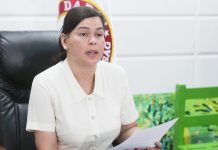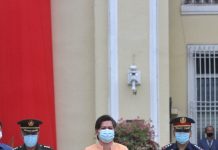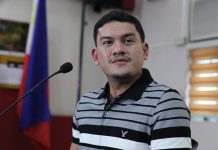From 27 million Filipinos half a century ago to 88 million in 2007, the Philippine’s population has increased from 94 million last year to an estimated 101 million as of mid-2011, according to the CIA World Factbook.
At this rate, 7 million new-born Filipino babies in one year is roughly equivalent to more than 19,000 new babies a day, almost 800 babies an hour, or 13 babies a minute — roughly one baby in less than five seconds. Globally, the world hits the 7-billion mark this October, according to the United Nations.
These and other issues on the Philippine population were just a few of the sidelights of a three-day multi-stakeholder conference last week organized by the Population, Health, and Environment (PHE) Network at the Family Country Hotel in General Santos City.
The Philippine Business for Social Progress, a pioneer in corporate social responsibility (CSR) practices in the Asia Pacific, has been the secretariat of the PHE network for the past three years.
The 4th National PHE Conference last July 27-29, with its theme on the effective integration of PHE advocacies and climate change imperatives in local and corporate governance, comes after the third conference in Tagaytay in March 2008, the second conference in Cebu in March 2006, and the first one in Antipolo in November 2004.
The three-day confab featured a group called the Cooperative Movement for Encouraging No-Scalpel Vasectomy (CMEN), which addressed climate change perspectives from the health sector and sauch speakers as Health Sec. Enrique Ona and Environment Sec. Ramon Paje, presidential adviser on Climate Change Elisea Gozun (keynote) who was introduced by Mindanao Development Authority (Minda) Sec. Luwalhati Antonino.
Plenary sessions were on mainstreaming PHE in climate change adaptation (CCA), including Social Welfare Sec. Corazon Soliman who discussed poverty reduction initiatives as affected by climate change.
On the third and final day (July 29), the Philippine Legislators’ Committee on Population and Development (PLCPD) together with Ifugao Rep. Teddy Brawner Baguilat discussed the reproductive health (RH) bill advocacy in Congress.
Commissioner Mary Ann Lucille Sering, vice chair and executive director of the Climate Change Commission (CCC), laid out key strategic priority actions under the National Climate Change Action Plan (NCCAP).
The first day (July 27 was devoted to skills-building on integrated PHE program design training workshop for pre-selected participants, courtesy of the Path Foundation Philippines and its Building Actors and Leaders for Advancing Community Excellence in Development (BALANCED) Project.
Day One featured a PHE 101 basic orientation session for all participants, courtesy of the PHE Network committee on information, education, and communication.
Day Two featured the opening of exhibit and welcome address by Mayor Darlene Magnolia Antonino-Custodio of General Santos.
The Family Planning Organization of the Phils. (FPOP), one of the conference conveners, discussed implementation of the Minimum Service Package (MISP) for reproductive health emergencies.
Path Foundation also tackled a comparative study in Palawan on integrated management of coastal resources and human health yields, while a representative from the World Wildlife Fund (WWF) spoke on developing a model for PHE-related coastal resources management (CRM) actions for Muslim communities.
The Philippine Eagle Foundation (PEF) talked on building socio-ecological systems among upland communities, primarily in the forest corridors of Arakan, North Cotabato, while Conservation International Philippines dwelled on the topic of upland ecosystems-based climate change governance and adaptation.
Tawi-tawi’s vice governor, Hadja Ruby Sahali, spoke on the 100 Rubies Program to Save Mothers and Babies in her province, as part of integrating PHE in CCA for the women and youth sector.
On the other hand, the Foundation for Agrarian Reform Cooperatives in Mindanao discussed mainstreaming organic farming in the banana industry value chain, relative to the experience of agrarian reform beneficiaries (ARBs) and indigenous peoples (IPs).
Together with CMEN, the Health Care Without Harm – Southeast Asia (HCWH-SEA) also discussed the role and responsibility of the health sector in addressing climate change.
On the third and final day, PBSP led the plenary session on public-private partnerships (PPP) as a mechanism towards ensuring sustainability and scaling up PHE.
PBSP executive director Rapa Cojuangco Lopa spoke on the business sector roadmap to the Millennium Development Goals (MDGs) on health and the environment.
Former Interior Sec. Raffy Alunan III, president of the Lopez Group Foundation, talked about the experiences of the Lopez group of companies in corporate social responsibility (CSR) through PHE and CCA initiatives.
Mayor Rafael Tanjuatco of Tanay, Rizal discussed the experiences of barangay Sampaloc in Tanay regarding PHE integration in livelihood.






